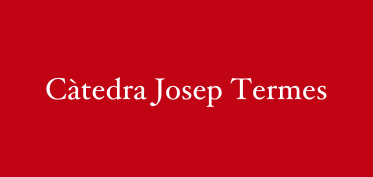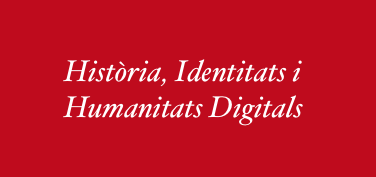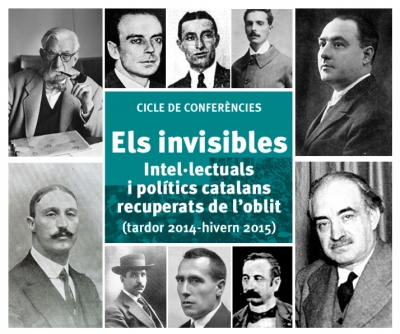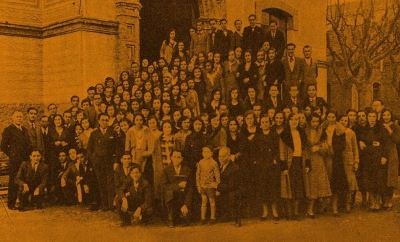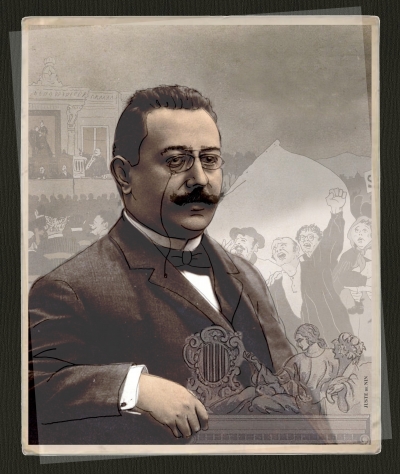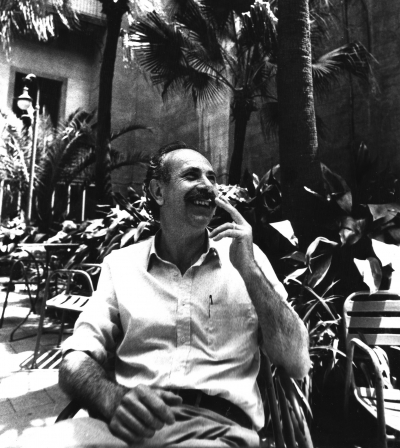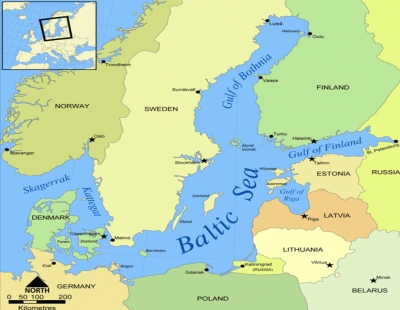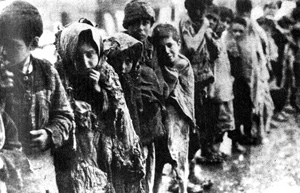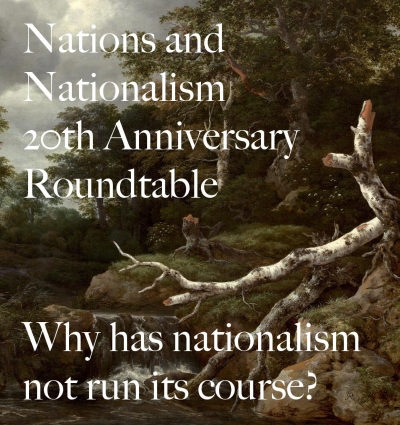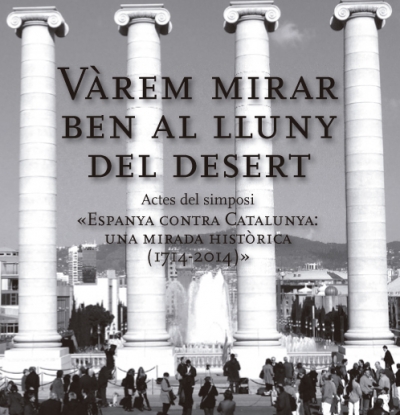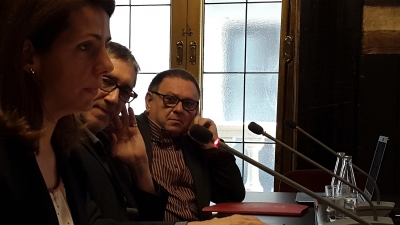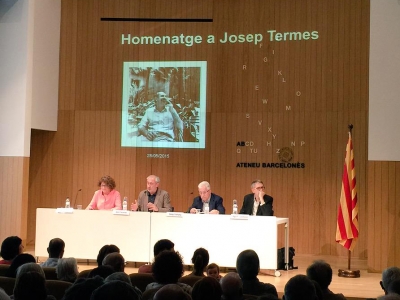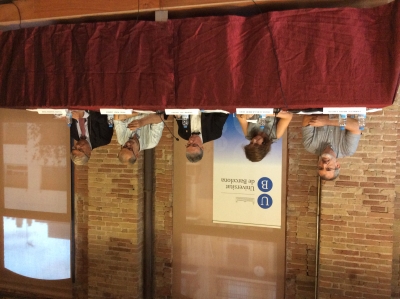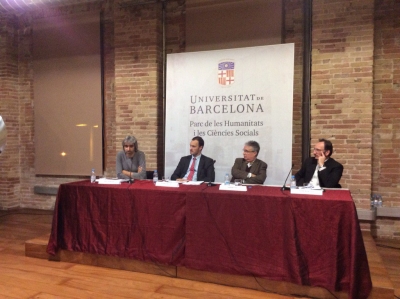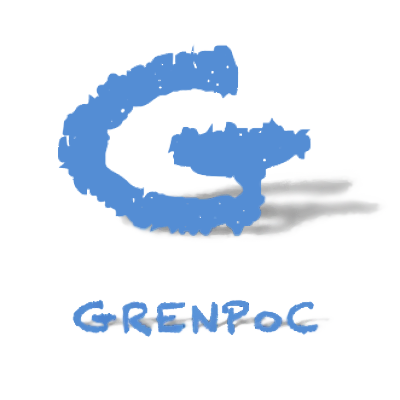Activities 2015
The invisible ones
Catalan intellectuals and politicians recovered from oblivion
This winter 2015 we have carried on with the series of lectures that we started in autumn 2014: The invisible ones. By these speeches, has been done a portrait of the personality and the work of several Catalan intellectuals and politicians who have been really important for the modern configuration of our country and, for some reason, are nearly forgotten nowadays.
The series has been directed by Dr. Agustí Colomines i Companys, Josep Termes Chair (UB) Academic Director, and Dr. Mercè Morales Montoya (UAB).
The conferences have been held weekly in the Auditorium of the Museu d’Història de Catalunya and have been organized by the Chair, the Centre d’Història Contemporània de Catalunya, the Societat Catalana d’Estudis Històrics and the Government of Catalonia within the commemorative events of the Tercentenary (1714-2014).
The speeches have been done by specialists on Catalonia history and culture. During this first trimester of 2015, the honored personalities have been the following:
- Antoni Andreu i Abelló, A Man from the National Front of Catalonia (by Fermí Rubiralta, historial, Education Department from Basque Government).
- Josep Badia i Torras, Carlism, Socialism and Christianity (by Lluís Duran, Centre d’Història Contemporània de Catalunya).
- Josep M. Espanya i Sirat, an Aranese Politician Minister during Hard Times (by Antonieta Jarné, Universitat de Lleida professor).
- Ferran Cuito, Engineer and Politician (by Amadeu Cuito, lawyer and economist).
- Joan Tauler i Palomeras, Close to Lluís Companys (by Arnau Gonzàlez Vilalta, Universitat Autònoma de Barcelona professor).
- Antoni Sesé Artaso, From the CNT to Communism (by José Luis Martín Ramos, Universitat Autònoma de Barcelona professor).
- Josep Pijoan i Soteras, At the Service of the First Cultural Institutionalization (by Imma Socias, Universitat de Barcelona professor).
- Miquel Vidal i Guardiola, Economist at the Service of a Political Project (by Mercè Morales, Centre d’Història Contemporània de Catalunya collaborator).
- Miquel Santaló i Parvorell, Republicanism and Pedagogy (by Salomó Marquès, Universitat de Girona professor).
- Eladi Homs i Oller, Pedagogy during the Noucentisme (by Francesc Homs i Ferret, economist).
- Fernando Tarrida del Mármol, Anarchism and Cosmopolitism at the end of 19st Century (by Teresa Abelló, Universitat de Barcelona professor).
- Simó Piera i Pagès, Experienced on Catalan Labor Movement (by Joaquim Ferrer, historian).
A tribute to Marc Taxonera and Pere Carbonell
On 3rd March 2015 has been held a tribute to Father Marc Taxonera (1919-2014) and Pere Carbonell (1916-2014) at the Auditorium of the Museu d’Història de Catalunya, both deceased on December 2014.
Father Marc Taxonera received the Creu de Sant Jordi Award on 2000. He was witness of several milestones of our country recent history and of the Catalan church.
Among his tasks are highlighted being the Director of the Biblioteca del Monestir, promoter of the Museu de Montserrat, of the Grup Cristià de Promoció i Defensa dels Drets Humans and member of Justícia i Pau at Barcelona’s diocese. He also managed the creation of Le Centre d’études catalanes de l’Université Paris-Sorbonne, took part of the Executive Committee of the Congrés de Cultura Catalana and was one of the founders of the Associació d’Arxivers de Catalunya.
Pere Carbonell received the Creu De Sant Jordi Award on 2012. He studied in the Escola Normal de la Generalitat and was connected to the Federació Nacional d’Estudiants de Catalunya. During the Spanish Civil War he joined the Escola Popular de Guerra and obtained the captain rank of the Republican army. He was captured in some French concentration camps and Spanish prisons.
He was involved with the Military Section of the Front Nacional de Catalunya. Professionally, he was a marketing director. He was CEO of the Commerce of Catalonia Government.
The double tribute has been organized by the Centre d’Història Contemporània de Catalunya, the Societat Catalana d’Estudis Històrics and the Catalonia Government. It has consisted of two speeches:
- Pere Carbonell, Example of a Divided Generation (by Agustí Colomines i Companys, Academic Director of Josep Termes Chair).
- Marc Taxonera: Monk, Church, Culture and Country (by Jordi López Camps).
Catalanism, Regionalism and Federalism. The centenary of the Mancomunitat (Commonwealth of Catalonia)
Seminar
On 9 and 10 of March 2015 has been held a seminar about La Mancomunitat at Universitat Pompeu Fabra and Biblioteca Pública Arús on the occasion of the centenary of the mentioned institution founding.
It has been organized by GRENS (Research Group on Estates, Nations and Sovereignties) of Institut Universitari d’Història Jaume Vicens Vives (UPF).
In the event have participated two members of the Chair's research group (GRENPoC) who are also the co-authors of the book Pàtria i Progrés. La Mancomunitat de Catalunya 1914-1924 (ed. Comanegra):
- La Mancomunitat, Between the State Centralism and the Catalanist Autonomism (by Agustí Colomines, Josep Termes Chair Academic Director)
- The Role of the Cultural Policy of La Mancomunitat in the Contruction of the Catalan National Culture (by Aurora Madaula)
Josep Termes. Catalanism, Labor Movement, Civility, Teresa Abelló and Agustí Colomines (Ed.)
Presentation of the Book in La Fatarella
On 20thMarch 2015 has been presented the book entitled Josep Termes. Catalanisme, obrerisme, civisme (Teresa Abelló and Agustí Colomines Eds.) in La Fatarella. The work has been published by Editorial Afers.
The speakers in the event have been Agustí Pons (writer and journalist), Teresa Abelló (UB professor), Agustí Colomines (UB professor) and Jesús Ruana, Mayor of La Fatarella.
The presented book is a miscellany to pay tribute to Josep Termes, historian specialized on the Catalan labor movement during 19th and 20th centuries, a valuable and engaged man who, however, has been little recognized. In the book, some specialists go into detail about Catalanism, labor movement and civility from the values and perspective of professor Josep Termes.
Ferran Mascarell (Counselor of Culture) is the responsible of the prologue. Jordi Casassas (UB), Santiago Izquierdo (UPF) and Lluís Duran (CHCC) deal with the perspective of Josep Termes about Catalanism. About his interests on the labor movement have written Teresa Abelló (UB), Pere Gabriel (UAB), Manel Lladonosa (UdL) and Francesc Bonamusa (UAB). The volume ends with the articles written by Agustí Colomines (UB), Francesc Roca (UB) and Josep M. Solé (UAB) who deal with Josep Termes interest on civility.
The contributors in the publication have been Josep Termes Chair, Editorial Afers, La Fatarella Council and the Consorcio Memorial dels Espais de la Batalla de l’Ebre (COMEBE).
Baltic States and Russian Speaking Minorities: Is There any Potential Risk of Ukrainisation?
Round table
On 26th March 2015 has been held a round table organized by Josep Termes Chair and CIDOB (Barcelona Centre for International Affairs). Under the title of Baltic States and Russian Speaking Minorities: Is There any Potential Risk of Ukrainisation?, the debate has been about the current situation of Russian minorities in the Baltic States, the perspectives that these states have regarding their relation with Russia and the risks of a possible ukrainisation of some of these states which are also members of the EU and the NATO. This interest has its cause in the surge of the conflict in Ukraine and the evidences of a growing Russian military intervention. These facts pose a really complex scene both for the Baltic Republics and the European security order.
Saulius Kaubrys, professor of History at Vilnius University (Lithuania), has done an initial explanation of the matter. The other participants in the round table have been:
- Dr. Agustí Colomines, professor of Contemporary History at UB and Academic Director of the Chair.
- Dr. Jordi Bacaria, professor of Applied Economics at UAB and CIDOB's director.
- Mr. Nicolás de Pedro, CIDOB’s principal investigator specialized on post-soviet space and India.
- Mr. Marc Gafarot, CIDOB’s coordinator of the area of international secessionist processes and cooperation to development
History of the Armenian Genocide
Debate
On 13rd April 2015 has been held a debate in the Col·legi de Periodistes de Catalunya about the History of the Armenian Genocide on the occasion of the centenary of the terrible events that took place in 1915.
The dialogue has been moderated by Mr. Llibert Ferri, journalist who was a TV3 special correspondent during 20 years (1987-2007) to Central and Eastern Europe and to the Soviet Union. The speakers have been Dr. Agustí Colomines, professor of Contemporary History at UB and academic director of the Chair, and Mr. Armen Gabriel Sirouyan, member of the Associació Cultural Armènia de Barcelona and specialist on the history of the Armenian genocide perpetrated by the Ottoman Empire. He also has explained the planned events on the occasion of the centenary.
Nationalism: Diversity and Security
Congress
During 21st, 22nd and 23rd April 2015 has been held in London School of Economics the 25th ASEN’s Congress. Under the title of Nationalism: Diversity and Security, it has been examined how the inner and external threats are progressively more and more connected and how are changing both the national security and the diversity of nation states.
Among others, some of the speakers have been Chetan Bhatt, Daphne Halikiopolou, Christopher Hill, Eric Kaufmann, Joep Leerssen, Iver Neumann, Liliana Riga, Sofia Vasilopoulou and Catherine Wihtol de Wenden.
Simultaneously, it has been the celebration of the 20th anniversary of the ASEN’s journal, Nations and Nationalism. On the occasion of this anniversary it has been done a round table entitled Why has nationalism not run its course? The main subject of the debate has been how important nationalism is politically and culturally in the contemporary world. Some of the speakers have been Geoffrey Hosking , Thomas Hylland Eriksen and Stein Tønnesson. To the debate have taken part many experts on nationalism, such as Dr. Agustí Colomines, academic director of the Chair and member of the journal’s International Advisory Board.
Vàrem mirar ben al lluny del desert. Actes del simposi “Espanya contra Catalunya: una mirada històrica (1714-2014)"
Presentation of the book
On 29th April 2015 has been presented the book Vàrem mirar ben al lluny del desert. Actes del simposi “Espanya contra Catalunya: una mirada històrica (1714-2014)" at the Auditorium of the Museu d’Història de Catalunya. This volume gathers the presentations done during the symposium which was done on occasion of the 300 anniversary of the defeat of Barcelona in front of Philip V of Spain.
In this symposium was analyzed from a historical point of view the influence of Spanish political actions regarding Catalonia, actions too often repressive. The speakers came from various disciplines: historians, economists, jurists, sociologists, linguists… Among others, highlights the participation of Josep Fontana, Jordi Maluquer, Antoni Furió, Jordi Casassas, Josep M. Solé i Sabaté, Jaume Sobrequés and Núria Bosch.
The book’s presentation has been done by Agustí Colomines (academic director of the Chair), Manuel Cuyàs (journalist) and Jaume Sobrequés (director of the Centre d’Història Contemporània de Catalunya and president of the Societat Catalana d’Estudis Històrics).
Detection of the needs of entrepreneur women from Barcelona
Presentation of the study
On 30th April 2015 has been held in Barcelona’s City Hall a closed meeting to present the results of the study Detection of the needs of entrepreneur women from Barcelona, which has been requested to Josep Termes Chair by Woman and Civil Law Councilor.
The attendees to the event have been experts on the issue and entrepreneur women that have collaborated to the research grating interviews where they have explained the main difficulties that they face when starting and keeping a project. They also have spoken in the interviews about which measures could do the local government to keep helping and promoting these initiatives.
The speakers have been Francina Vila (Woman and Civil Law Councilor), Agustí Colomines (academic director of the Chair) and Manel Bardàvio (who has been in charge of the study development).
The attendees expressed their point of view regarding women’s entrepreneurship in Barcelona and their main concerns about this matter.
A tribute to Josep Termes in Ateneu Barcelonès
Speech of Josep Fontana
On 28th May 2015 has been held in Ateneu Barcelonès a tribute to Josep Termes, a historian specialized on Catalan labor movement during 19th and 20th centuries, a man engaged with his time whose task hasn’t been enough recognized.
Josep Fontana, emeritus professor at UPF and friend of Josep Termes, has been in charge of the speech. He has explained their shared experiences mixing them with relevant historical episodes and anecdotes.
In the event has also participated Jordi Casassas (professor at UB and president of Ateneu Barcelonès), Teresa Abelló (professor at UB) and Agustí Colomines (professor at UB and academic director of the Chair).
The occasion has been used, as well, to claim the need to gather Josep Termes works and to present the book Josep Termes. Catalanisme, Obrerisme i Civisme (Teresa Abelló and Agustí Colomines Eds.) a miscellaneous volume where several experts approach to Catalanism, labor movement and civility from the perspective of Josep Termes.
By clicking in this link you can read Josep Fontana’s speech (in Catalan).
The refugee crisis debated: between the right of asylum and the shelter
Round table
On 22nd September 2015 has been held in the Humanities and Social Sciences Park a round table entitled “La crisi dels refugiats a debat: entre el dret d’asil i l’acollida”. This event, organized by Josep Termes Chair, Humanities and Social Sciences Park and Fundació Solidaritat UB is the first of a series of debates that will be done in Can Jaumandreu aimed to analyze several current issues from an academic perspective.
The speakers of this debate come from various disciplines and they have clearly explained their point of view about that humanitarian crisis in an entertaining but convincing way. Simultaneously, they have tried to resolve the several existing doubts regarding this issue and how they should be solved. Their voices together has become to a cross curricular analysis of the situation:
- Eduard Sagarra Trias, professor of Public International Law at UB and ESADE and president of the Associació per a les Nacions Unides a Espanya (ANUE).
- Àngel Miret i Serra, Government of Catalonia coordinator for the refugee shelter in Catalonia and professor of Political and Social Sciences at UPF.
- Francesc Mateu, director in Catalonia of Oxfam Intermón and member of Stop Mare Mortum.
- Maria-Alba Gilabert, journalist of the International section of Catalunya Ràdio.
Gaspar Coll, professor of Art History at UB and commissioner for the Park and the scientific promotion of Humanities and Social Sciences, was the moderator of the debate.
The highlights of the speeches and the following debate are, in a governmental level, the confusion of Spanish government that doesn’t know how to face this situation and the lack of competencies of the Government of Catalonia on refuge issues. However, the Government of Catalonia has competencies on taking care of people, that’s why it is already preparing –together with several social institutions– measures to face the refugees arrival, such as the creation of a bank of resources. We can notice in Europe a miserly inclination to consider the refugees as merchandises to use, that’s why it seems that some countries, such as Germany, disguise as solidarity the intention to choose “the best refugees”. It stands out that all speakers agree on how necessary is to solve the problem, not just the symptoms. It is absolutely necessary to find a solution that makes that these people aren’t forced anymore to run from their countries because of the dictatorships or the jihadism. In a legislative level, it was pointed out how important is to know the rights of the refugees.
Regarding the humanitarian analysis also done, one of the emphasized ideas has been that we need to become aware of this isn’t a brand new problem focused in Syria: an exorbitant number of people are forced to flee from their countries for a long time and from many origins. However, we are identifying with this refugee wave because their social and cultural level is similar to ours. This empathy is positive, but it is also dangerous: is it possible that the current solidarity becomes temporary or that we end up considering some people as first-class refugees and, the other ones, as second-class refugees. We obviously must fight to avoid this.
It also has been stressed that, apart from denominations (refugee, immigrants, etc.), we are speaking about people. To help these people is not generosity, is justice. All people have the right to preserve or recover their dignity and we, from Europe, must commit ourselves to help them doing it.
From the point of view of the NGOs, the actions of the European governments to manage this crisis have been idle until they have been forced to react due to the pressure of citizens. Even so, ironically, any political party has proposed measures to solve this problem in their electoral programs for next 27-S elections.
They also have dealt with the mass media role when doing the coverage of this crisis. Irremediably, one of the highlights has been the polemic dissemination of the image of Aylan Kurdi’s dead body in the beach or the reprehensible actions of the Hungarian “journalist” Petra Laszlo hitting and tripping refugees up while they were trying to flee from the police cordon. In a communicational way it has been really important the role played by the social networks on this crisis: they have been essential to raise awareness about this terrible problem.
A shared opinion by all the speakers has been that this refugee crisis is a chance for Europe to change some things that, until now, have been badly managed. This is the only way that, at least, this tragic situation leads to a positive result.
The debate has been successful both for the quality of the contents and the level of participation. It also attended and participate the members of several of the collaborator institutions: Associació per a les Nacions Unides a Catalunya, Comissió Catalana d’Ajuda al Refugiat, Federació d’Organitzacions Catalanes Internacionalment Reconegudes, Fundació ACSAR, Stop Mare Mortum, CIEMEN, Observatori de l’Estudiant, Servei d’Atenció a l’Estudiant, the Catalan Committee of ACNUR and IGMAN.
Following these links, you can watch the complete video of the event and another one with the highlights.
Freedom and Security, the Best Pairing
On 16th December it has been opened the series “We or they”: Europe facing the challenge of jihadist terrorism. The series has been organized by Josep Termes Chair and Humanities and Social Sciences Park, and it has begun with a round table entitled Freedom and Security, the Best Pairing.
The speakers of this first debate have been Jordi Armadans, (political scientist and director of FundiPau), Albert Batlle (director general of Police) Jofre Montoto (security analyst specialized on terrorism and jihadism) and Eduard Sallent (chief of the General Commission of Institutional Relations, Prevention and Mediation). The round table has been moderated by Gaspar Coll, Art History’s professor at UB and commissioner for the Park and the scientific promotion of Humanities and Social Sciences.
Albert Batlle has emphasized that we are facing a new form of terrorism. This places us in a confusing stage where we run the risk of losing our freedom.
Jofre Montoto has explained how the jihadist terrorism has made the relation freedom-security more and more tense. Each person gives a different value to freedom and security, often depending on his age; that’s why he considers that the main threat we face is that the jihadism breaks social cohesion and the balance in the pairing freedom/security.
Jordi Armadans has pointed out that we must remember that the Muslim population is the one that has had more casualties because of the jihadism and that the European deaths –even though they are closer to us– are much more unusual. Is really important for him that we are careful with the security measures displayed due to the last attacks because they can be detrimental to our freedom spaces. Finally, he foster us to ask ourselves why the jihadist terrorism has increased so much during the last 15 years and if the military and security responses just reinforce it.
Eduard Sallent has highlighted that, both from the mass media and the security forces, it is necessary to have the citizen informed but never frightened. He also has spoken about how important is to promote social cohesion without falling into stigmatizations.
Following these links, you can watch the complete video of the event and another one with the highlights.
Next round tables of this series will be dedicated to analyze this issue focusing on religion (20th January, Religion and the limits of identity) and on education (10th February, Education as a way to prevent extremisms). We encourage you to come.
All the information can be found in the program of the series. You just need to confirm your attendance writing to (Necessites javascript per veure aquest correu-e).
